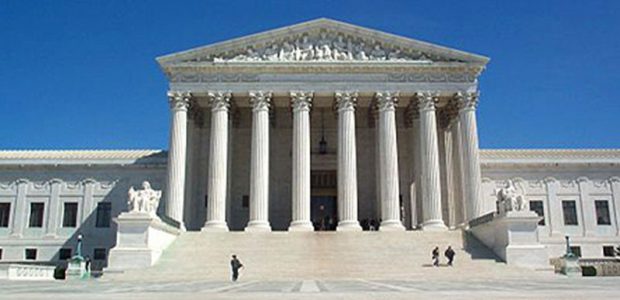


The Supreme Court this morning sent the challenges to both social media laws of Florida and Texas back to the lower courts to decide, ruling that neither the Eleventh Circuit nor the Fifth Circuit, who were on opposite sides of the case, properly analyzed these “facial First Amendment challenges.”
The court, for the most part, all agreed:
KAGAN, J., delivered the opinion of the Court, in which ROBERTS, C. J., and SOTOMAYOR, KAVANAUGH, and BARRETT, JJ., joined in full, and in which JACKSON, J., joined as to Parts I, II and III–A.
BARRETT, J., filed a concurring opinion. JACKSON, J., filed an opinion concurring in part and concurring in the judgment.
THOMAS, J., filed an opinion concurring in the judgment. ALITO, J., filed an opinion concurring in the judgment, in which THOMAS and GORSUCH, JJ., joined.
Here’s the summary of the ruling:
In 2021, Florida and Texas enacted statutes regulating large social-media companies and other internet platforms. The States’ laws differ in the entities they cover and the activities they limit. But both curtail the platforms’ capacity to engage in content moderation—to filter, prioritize, and label the varied third-party messages, videos, and other content their users wish to post. Both laws also include individualized-explanation provisions, requiring a platform to give reasons to a user if it removes or alters her posts.
NetChoice LLC and the Computer & Communications Industry Association (collectively, NetChoice)—trade associations whose members include Facebook and YouTube — brought facial First Amendment challenges against the two laws. District courts in both States entered preliminary injunctions.
The Eleventh Circuit upheld the injunction of Florida’s law, as to all provisions relevant here. The court held that the State’s restrictions on content moderation trigger First Amendment scrutiny under this Court’s cases protecting “editorial discretion.” The court then concluded that the content-moderation provisions are unlikely to survive heightened scrutiny. Similarly, the Eleventh Circuit thought the statute’s individualized-explanation requirements likely to fall. …The court held that the obligation to explain “millions of [decisions] per day” is “unduly burdensome and likely to chill platforms’ protected speech.”
The Fifth Circuit disagreed across the board, and so reversed the preliminary injunction of the Texas law. In that court’s view, the platforms’ content-moderation activities are “not speech” at all, and so do not implicate the First Amendment. But even if those activities were expressive, the court determined the State could regulate them to advance its interest in “protecting a diversity of ideas.” The court further held that the statute’s individualized-explanation provisions would likely survive, even assuming the platforms were engaged in speech. It found no undue burden under Zauderer because the platforms needed only to “scale up” a “complaint-and-appeal process” they already used.
HELD: The judgments are vacated, and the cases are remanded, because neither the Eleventh Circuit nor the Fifth Circuit conducted a proper analysis of the facial First Amendment challenges to Florida and Texas laws regulating large internet platforms.
You can read the full ruling here.
